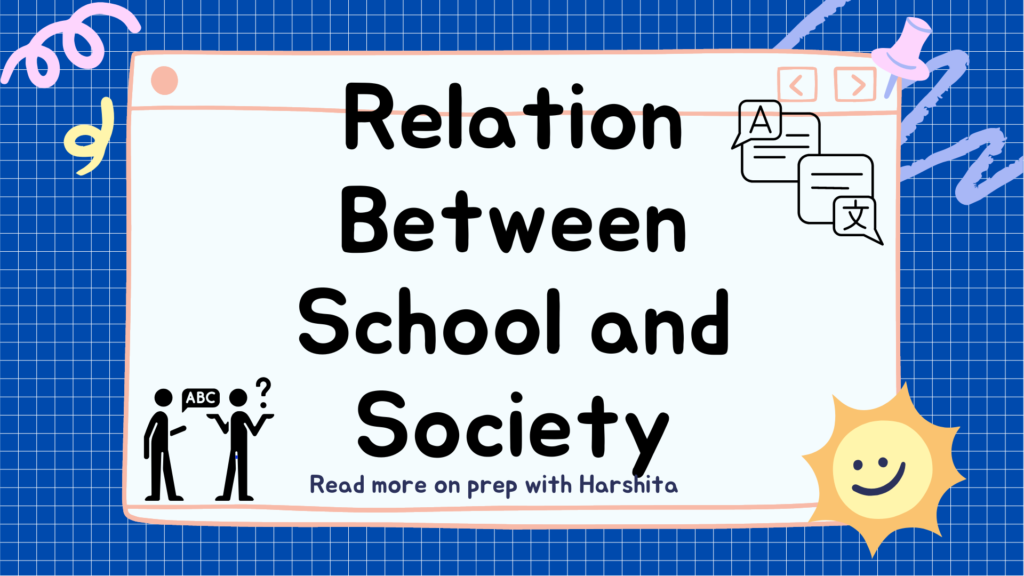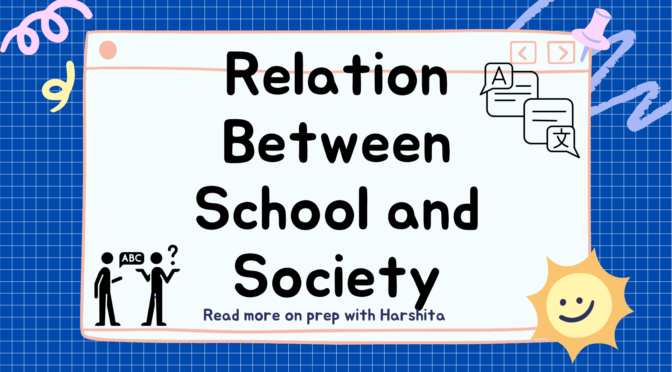The relation between school and society is intricate and interconnected. Schools are a reflection of the broader society in which they are situated, and they play a vital role in shaping and influencing the values, knowledge, skills, and socialization of individuals.
Here are some key aspects of the relationship between school and society:
- Socialization and Cultural Transmission: Schools serve as institutions of socialization, where individuals learn and internalize societal norms, values, and expectations. They play a significant role in transmitting cultural heritage, knowledge, and traditions across generations. Schools contribute to shaping the identity, beliefs, and social behaviors of students, preparing them to participate in society.
- Education and Human Capital Development: Schools are crucial for the development of human capital, which is essential for the progress and advancement of society. Education equips individuals with knowledge, skills, and competencies necessary for their personal and professional growth. Well-educated individuals contribute to economic productivity, innovation, and social development.
- Social Mobility and Equality: Schools provide opportunities for social mobility, allowing individuals to improve their socioeconomic status and break free from social barriers. Education can bridge inequalities by offering equal access to knowledge and opportunities, regardless of background or social status. Schools play a crucial role in promoting social justice and creating a more equitable society.
- Social Integration and Cohesion: Schools bring together students from diverse backgrounds and experiences, fostering social integration and cohesion. They provide a space for interaction, collaboration, and the development of social relationships among individuals with different cultural, ethnic, and socioeconomic backgrounds. Schools contribute to building a sense of community and shared values.
- Preparation for Citizenship: Schools prepare individuals to be active and responsible citizens. They provide civic education, teaching students about their rights, responsibilities, and the functioning of democratic institutions. Schools promote democratic values, critical thinking, and social awareness, preparing individuals to participate in civic life and contribute to the betterment of society.
- Socialization of Norms and Values: Schools play a crucial role in socializing students into societal norms, values, and ethical standards. They teach students about acceptable behaviors, moral principles, and social responsibilities. Schools promote ethical conduct, empathy, respect for diversity, and responsible citizenship, shaping the moral fabric of society.
- Influence on Social Change: Schools can be agents of social change by challenging existing norms, biases, and inequalities. They can promote awareness, critical thinking, and activism among students, encouraging them to question social injustices and work towards positive transformation. Schools can foster a sense of agency and empower individuals to contribute to a more just and inclusive society.
It is important to recognize that the relationship between school and society is dynamic and constantly evolving. Schools both reflect and shape the values, aspirations, and challenges of the societies they serve. The quality of education and the values upheld by schools significantly impact the well-being of individuals and the overall progress of society.
Also Visit : Prep with Harshita

Also Read : Family as Social Institution

